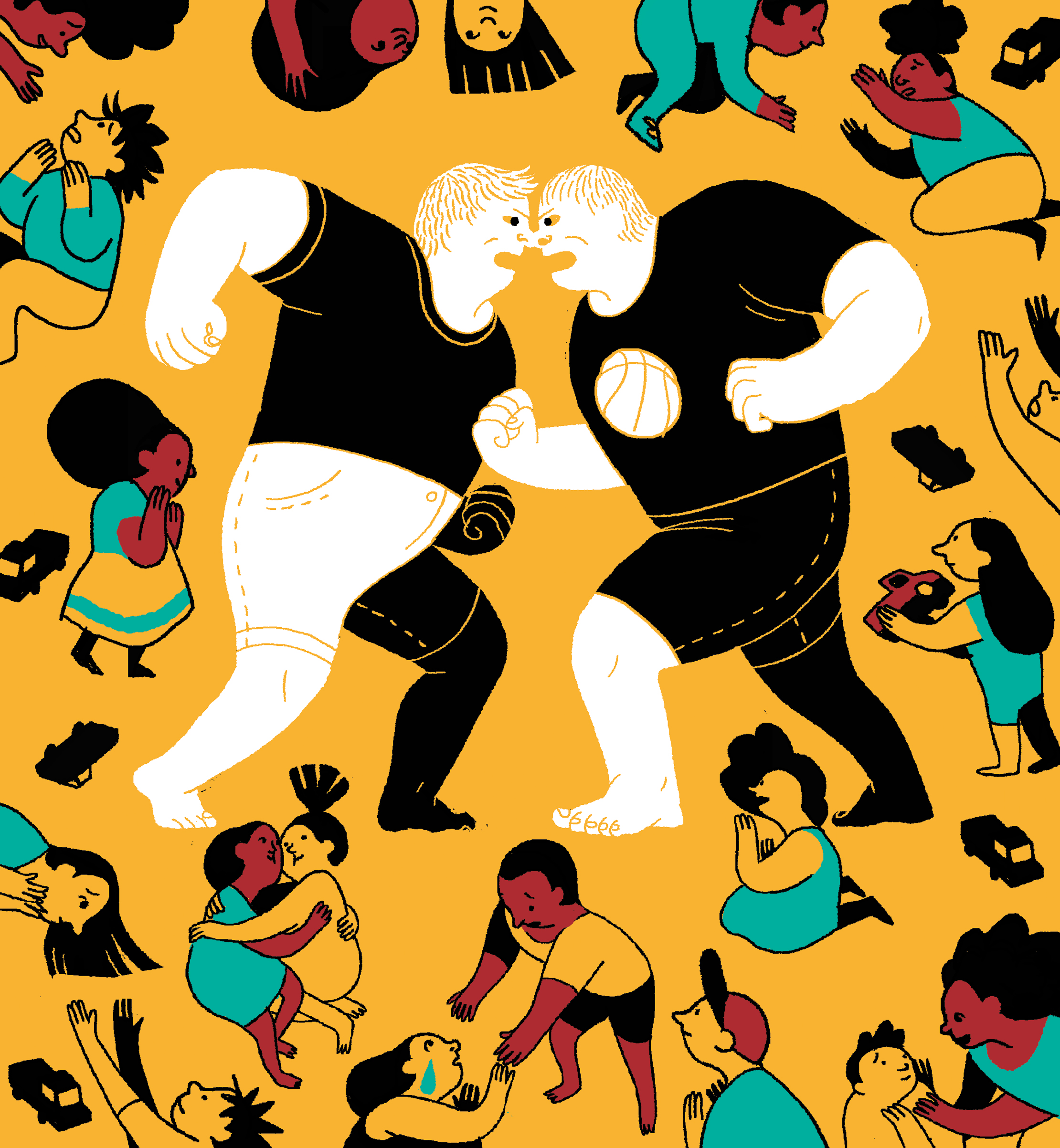
Van Ogtrop is the author of Just Let Me Lie Down: Necessary Terms for the Half-Insane Working Mom.
A few weeks ago, my eldest son, who is in his first year teaching fourth grade in a public elementary school, decided to put a suggestion box in his classroom, though he wasn’t quite sure what the box would yield. The result was not so much suggestions as appeals for kindness. From “Lots of people don’t mind their own business” to “I am stressed out because everybody keeps arguing about little things,” there was a classwide desire for compassion, if no clear sense of how to get it.
As a new teacher, my son is routinely surprised by things his 9-year-old students do, but more than anything he is surprised by how badly they treat one another. The children want to be on the receiving end of kindness but have trouble handing it out. On a daily basis, they are tripped up by three obstacles: lack of impulse control; thoughtlessness; and difficulty with forgiveness, or letting things go.
Because of a complicated set of factors involving fertility, a love of babies and general midlife panic, I also happen to be the mother of a son who attends elementary school, though not the one where his older brother teaches. Seeing what kindness means to young humans through the bookends of my two sons can be a mind-bending exercise, like looking in a fun-house mirror: everything is familiar, but nothing actually matches.
Kindness comes up a lot around this time of year. That annual quest for bettering ourselves and re-examining what it is we’re all doing here peaks in January. And that well-known Henry James quote rises to the surface: “Three things in human life are important. The first is to be kind. The second is to be kind. And the third is to be kind.” I think of those words when I’m with my kids, or just being a human in our world, struggling to understand whether kindness is learned or innate, or a little bit of both.
Shortly after last year’s presidential election, I bought a book called On Kindness. Thinking back, I’m not sure what I was looking for. A diversion? A tutorial? A reassuring intellectual pat on the shoulder to remind me that when politicians go low, I can still go high? I did get those things, but in this slim volume, authors Adam Phillips (a psychoanalyst) and Barbara Taylor (a historian) also present a tour of kindness through the ages, from the Stoics through today, which yields one surprising truth: kindness–which seems as immutable a part of the human experience as love or hate, joy or sorrow–is subject to cultural shifts, governed by the thinking and mood of the age. It turns out there are kindness trends, and I don’t mean virally spread gimmicks like paying for the person behind you in the Starbucks drive-through. Early Christians gave us the Good Samaritan as an example that kindness was what equalized and bound us together; the Victorians thought kindness was exclusively a woman’s concern. Jean-Jacques Rousseau believed that caring about others was what makes us fully human; as the authors explain, “The self without sympathetic attachments is either a fiction or a lunatic.” And social scientists say we evolved to be compassionate back in our hunter-gatherer days. If one member of the tribe suffers, we’re all at risk, so taking care of one another is hardwired into the species.
Published back in 2009, On Kindness ends on something of a down note when it gets to our modern times. In our striving for success, we have become too individualistic, too selfish, loath to admit we are dependent on anyone. But Phillips and Taylor believe there is still hope in children, if we adults don’t ruin them. They write, “The virtual reflex of engaged concern that children show for others, all too easily gets lost in growing up; and that this loss, when it occurs on a wide enough scale, is a cultural disaster.”
Which brings me back to my eldest son. Twenty-two years old, himself a brand-new adult coming of age in an angry nation, he is all too aware of what gets lost in growing up. And so he wrestles daily with how to promote and sustain a feeling of kindness in his classroom, for these children who are our future. His students are extremely sympathetic when one of their peers is upset; they don’t hesitate to yell across the room to get his attention if they see a classmate crying, even if they have caused the tears. “They are very good at comforting each other,” my son recently told me. “But it’s like they have to totally destroy each other first.”
Van Ogtrop is the author of Just Let Me Lie Down: Necessary Terms for the Half-Insane Working Mom
More Must-Reads from TIME
- Donald Trump Is TIME's 2024 Person of the Year
- Why We Chose Trump as Person of the Year
- Is Intermittent Fasting Good or Bad for You?
- The 100 Must-Read Books of 2024
- The 20 Best Christmas TV Episodes
- Column: If Optimism Feels Ridiculous Now, Try Hope
- The Future of Climate Action Is Trade Policy
- Merle Bombardieri Is Helping People Make the Baby Decision
Contact us at letters@time.com